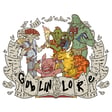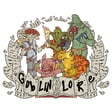
Episode 22: Parun Spice Latte with Titus Lunter, Part II
Hello, Podwalkers, and welcome to the Goblin Lore Podcast!
In our twenty-second episode, the guys talk with Magic: the Gathering artist Titus Lunter, who not only has done plenty of illustrations for Magic cards – he also has been a member of the concept team for at least two sets (Amonkhet and Guilds of Ravnica). Titus elaborates on his own process of becoming an artist, the emotional toll this process has taken, and his vision for the future of artist involvement in Magic Grand Prix's and MagicFests.
This is the second episode in a three-part series. Part III – our mailbag episode – will release on November 30th. You can also check out Titus's work here.
There may be "secret vault" audio of discussions about Titus's art and other elements of Ravnican design, so stay tuned for information on how to access that!
____________________________________________
Remember: we've reached 300 followers on Twitter, so we'll do our next giveaway soon! Keep the word of mouth going; another is up at 400!
____________________________________________
You can find the hosts on Twitter: Joe Redemann at @Fyndhorn, Hobbes Q. at @HobbesQ, and Alex Newman at @AlexanderNewm. Send questions, comments, thoughts, hopes, and dreams to @GoblinLorePod on Twitter or GoblinLorePodcast@gmail.com.
Goblin Lore is proud to be a member of the Geek Therapy Network (on Twitter at @GeekTherapy).
Opening and closing music by Wintergatan (@wintergatan). Logo art courtesy of Greg Staples, design by Joe Redemann.

